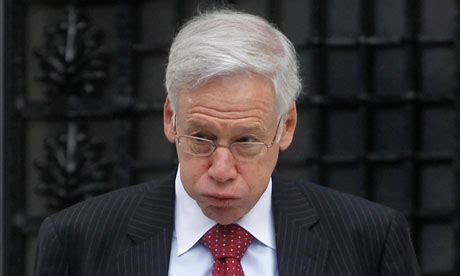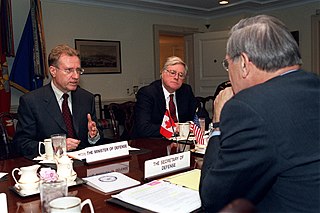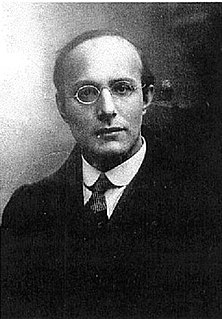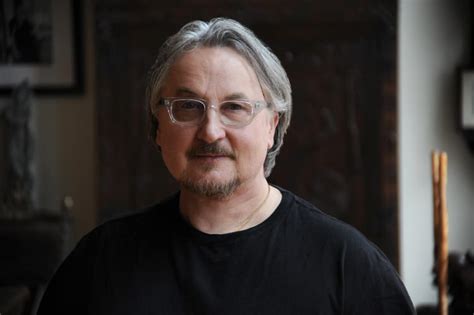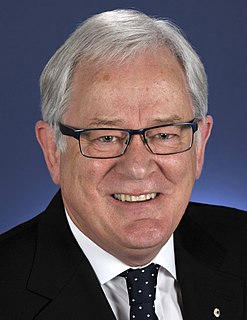Top 88 Tariffs Quotes & Sayings - Page 2
Explore popular Tariffs quotes.
Last updated on April 19, 2025.
As proof of this statement, consider this question: Have the people ever been known to rise against the Court of Appeals, or mob a Justice of the Peace, in order to get higher wages, free credit, tools of production, favorable tariffs, or government-created jobs? Everyone knows perfectly well that such matters are not within the jurisdiction of the Court of Appeals or a Justice of the Peace. And if government were limited to its proper functions, everyone would soon learn that these matters are not within the jurisdiction of the law itself.
This is where I would lodge my deepest criticisms. We have very whimsically been threatening and then backing off of tariffs. The people who are paying the price for the lack of strategy are North Carolina consumers who are paying more for durable goods and North Carolina farmers who don't have markets today.
From the Anarchist standpoint, these artificial hindrances which are the cause of three main forms of usury-interest, profit, and rent, are, in the order of their importance, monopoly in the control of the circulating medium-money and credit, private property in land not based on occupancy and use, patent rights and copyrights, and tariffs.
Though editorialists at The New York Times and The Washington Post still don't get it, most Democrats in Congress finally do: Today's trade disputes are no longer mostly about tariffs, quotas, or free entry of goods. They are about the ground rules for capitalism. Are there to be only property rights? What about the other rights that liberal democracies have fought for since the 1880s?
We know from drafts that the Donald Trump's administration has circulated on Capitol Hill, there are a few things they would like to change about NAFTA. They would like to, for example, have the ability to impose tariffs just because imports are surging from Canada or Mexico, not necessarily because they're being sold unfairly. They want more freedom to use our countervailing the subsidy laws against Canada and Mexico.
I think the first what would happen in the immediate wake of a hard Brexit is a lack of confidence in UK economy. Business is already telling me that they need a year or so to adjust to what is going to change in March 2019. Without a deal, tariffs would immediately kick in and we would need all the physical attributes of a customs border. And that is just the trade aspect. Imagine what would happen if, from one day to the next, we had no aviation agreement or no agreements for dealing with security across Europe.
For example, the supporters of tariffs treat it as self-evident that the creation of jobs is a desirable end, in and of itself, regardless of what the persons employed do. That is clearly wrong. If all we want are jobs, we can create any number--for example, have people dig holes and then fill them up again, or perform other useless tasks. Work is sometimes its own reward. Mostly, however, it is the price we pay to get the things we want. Our real objective is not just jobs but productive jobs--jobs that will mean more goods and services to consume.
Threats of trade protectionism, plus unilateral actions on the exchange-rate front, such as the heavy interventions of China, Japan, and Switzerland in the currency markets - not to mention the retaliatory tariffs recently passed by the U.S. House of Representatives - endanger growth prospects and could further depress financial market confidence.
The underconsumptionist of 1819 believed that consumption would be stimulated by tariffs, while the underconsumptionist of a later day urged monetary expansion as the remedy. On the other hand, the remedy proposed for the shortage of money capital was monetary inflation in 1819, encouragement of savings and thrift in the 1930s.
Thirty-five states have Canada as their largest export market. Let's say we get into a trade war with the United States - hopefully not, but let's say. Many states in the union are going to have trouble and more costs getting their stuff up to Canada. If we make the border a little thicker in terms of tariffs, and hit back, that will start to impact the states, in particular large business interests that are in Canada. And that starts to put indirect pressure on the White House.
Many people who have lost out in the last few decades voted for Trump. Trump will have a difficult time turning them into winners. The jobs of these people are not at risk because of Chinese or Mexican workers, but because of robots and computers. And new trade barriers and higher tariffs are not going to change that.
Many students don't really like it (fashion). If they don't like it, they won't be able to tell you who the stylists are or the photographers. If they say they can't remember the names but they recognize the work, I'll say that's bullshit because if you were selling mobile phones, you'd know all about the phones' features and tariffs.
Now, legal plunder can be committed in an infinite number of ways. Thus we have an infinite number of plans for organizing it: tariffs, protection, benefits, subsidies, encouragements, progressive taxation, public schools, guaranteed jobs, guaranteed profits, minimum wages, a right to relief, a right to the tools of labor, free credit, and so on, and so on.
We want a comprehensive package that covers export subsidies, tariffs and overall levels of support. British Prime Minister Tony Blair is making central to his summit speech that he wants to abolish all export subsidies. It is up to him to push the European Union in that direction, and the U.S. needs to reciprocate.
Legal plunder can be committed in an infinite number of ways; hence, there are an infinite number of plans for organizing it: tariffs, protection, bonuses, subsidies, incentives, the progressive income tax, free education, the right to employment, the right to profit, the right to wages, the right to relief, the right to the tools of production, interest free credit, etc., etc. And it the aggregate of all these plans, in respect to what they have in common, legal plunder, that goes under the name of socialism.
There was nothing natural about laissez-faire; free markets could never have come into being merely by allowing things to take their course. Just as cotton manufactures were created by the help of protective tariffs, export bounties, and indirect wage subsidies, laissez-faire was enforced by the state.
Blockading squadrons are a means whereby nations seek to prevent their enemies from trading; protective tariffs are a means whereby nations attempt to prevent their own people from trading. What protectionism teaches us, is to do to ourselves in time of peace what enemies seek to do to us in time of war.
Availability of the best also is limited in our culture. And it's also extremely expensive. It's ridiculous. A kilogram of rose oil costs me very much. By the time it is shipped here and we pay tariffs, how much more do I have to charge the consumer? And then who could afford to buy it? That is why people sell synthetic rose and end up poisoning themselves. It shouldn't be that way.
It should be possible to emphasize to students that the level of employment is a macroeconomic issue, depending in the short run on aggregate demand and depending in the long run on the natural rate of unemployment, with microeconomic policies like tariffs having little net effect. Trade policy should be debated in terms of its impact on efficiency, not in terms of phoney numbers about jobs created or lost.
We had a level of tariffs of about five per cent. Now a lot of those will go, most of them will go over time, some of them immediately. Now that means that electronic goods and other things, white goods, coming into Australia, will be cheaper for our community. It also means in many cases that the inputs used by our high-end manufacturers to make a final product are also coming in cheaper than they otherwise would - so it makes those manufacturers more competitive.
Like all Canadians, I was deeply frustrated by the decision of U.S. President Donald Trump to impose tariffs on Canadian steel and aluminum. Conservatives are the party of free trade, and numerous Conservative MPs, including our leader Andrew Scheer, have travelled to the United States to help make the case for Canada.
Donald Trump can, for example, imply the threat that federal business will be withheld from some of companies. That's possibly dangerous precedent. You know what I mean? When - the Pentagon has very specific guidelines, for example, when it goes out and does procurement. You don't want them buying a jet engine which is actually inferior to another jet engine simply because that other company outsourced some jobs. The final thing that Trump could do is he could impose tariffs on any products that are imported once they have been outsourced to another country.







